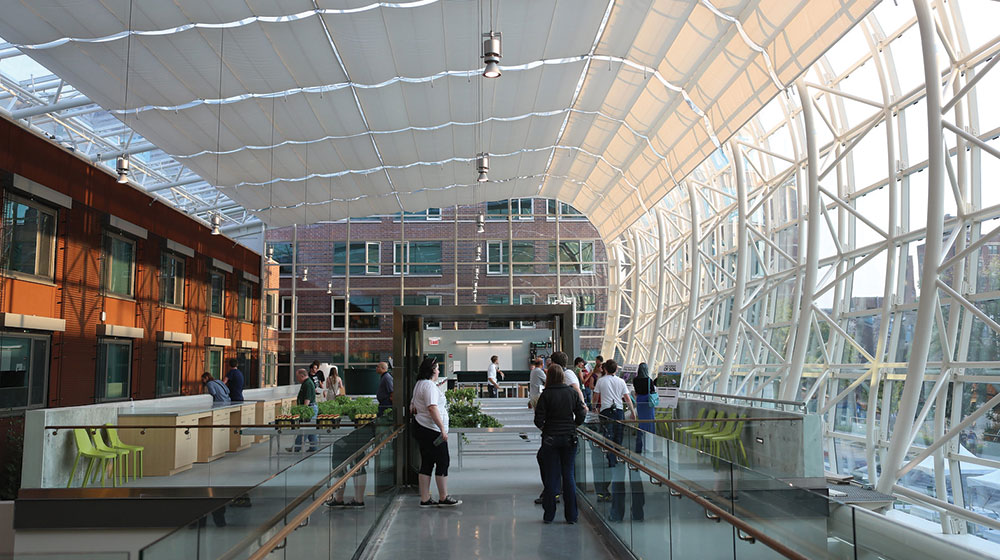Where supply chain meets sustainability

The following is an interview between Loyola's School of Environmental Sustainability and Harry Haney, former director of Loyola's Supply Chain and Sustainability Center. It first appeared in the April 2020 SES newsletter.
Please explain your work and expertise and how it pertains to sustainability.
As background, supply chain accounts for 44 million jobs in the US – 37% of the workforce (source). Nearly double the size of the single largest industry sector (health care) of the US economy (source). Further, a recent McKinsey report indicates 90% of companies’ environmental impacts come from supply chains. Our center originally launched in 2012 as the Supply and Value Chain Center (SCSC). We recently re-branded as the Supply Chain and Sustainability Center to reflect the increased importance of sustainability across industries and the fact that supply chains are best positioned to have an impact. In fact, a recent MIT study indicated the vast majority of supply chain leaders believe that sustainability either already is or will become a core part of their job responsibilities.
- Our work at the Center is all about helping our members and the supply chain community find practical, implementable solutions to the challenges they face. Because nearly every aspect of supply chain has a sustainability component, almost by necessity, the solutions must consider sustainability.
- The SCSC is part of the Loyola Business Leadership Hub, we are interdisciplinary working with schools across Loyola University Chicago
- A little “myth-busting” a sustainable solutions don’t have to cost more – frequently they cost less. A good example of this could be utilizing intermodal transportation (truck and rail) vs truck transportation to move freight. Pound for pound, intermodal will likely emit less than half the carbon as a truck – and the cost will generally be less.
How is mobility shaping the supply chain?
The impacts are many and far-reaching and over the last year have also become far more visible. Here are a couple examples
- E-commerce has exploded over the last several years. This brings both a warehousing and a transportation challenge. From a warehousing perspective, e-commerce requires about 3 times as much space as a traditional retailer model. This is in part because of the work differences (picking “eaches” as opposed to cases) and needing more buildings to be close enough to your customer base to satisfy delivery speed expectations. In terms of transportation, it means more, smaller vehicles out making deliveries. The goods news is that these “local” (short distance) routes are more conducive to alternative fuel vehicles than long-haul trucking.
- Air Freight. High-value goods like electronics and pharmaceuticals depend on it. But about half of air freight travels in the belly of passenger planes... and we know what has happened to them. Year over year, capacity is down at least 20% while rates are nearly double. Source
How can students get involved with/learn more about sustainable supply chains?
Here are some options - we highly encourage student to take advantage of all the opportunities. It's as easy as reaching out to us at scsc@luc.edu and letting us know what you are interested in.
Our Center is forming a new student club – Students for Leadership and Sustainability – in the fall we’ll have speakers, tours, and other activities.
- Join our mailing list to stay up to date on events and our thought leadership publication, The Source.
- Attend and participate in our events – we offer complimentary admission to our students. It’s a great place to learn and network with industry professionals
- The demand for supply chain professionals is increasing and expected to continue. We are seeing hiring for interns and full time positions getting very close to pre-pandemic levels. This is a dynamic field that offers a wide range of career opportunities and given the intersection with sustainability, truly is a place where you can do well by doing good.
What are the social justice impacts of your work?
In our view, for business to be sustainable it must be managed responsibly from a people, planet and profit perspective. How we treat people – whether they are customers, associates, or suppliers - will impact the success of the business. Our programming and publications very frequently include such topics as supplier diversity, second chance hiring, and diversity, equity, and inclusion among other issues. A good example of this is our April 30th virtual event, which is free to students, Accelerating Sustainability: Loyola University Chicago (luc.edu). One of the panels will talk about the work they are doing to reduce food waste and the impact that has on food insecurity - something that over one in five Americans including almost 14 million children have experienced over the last 11 months.
